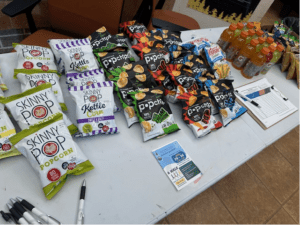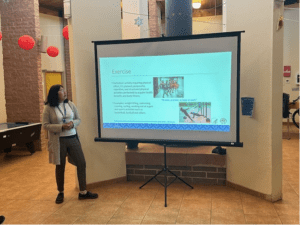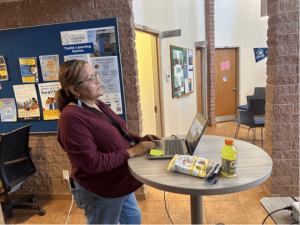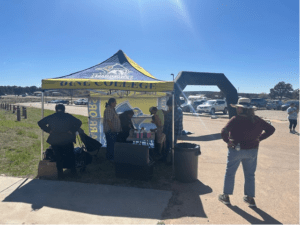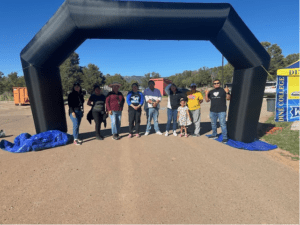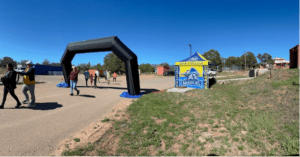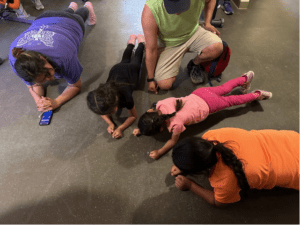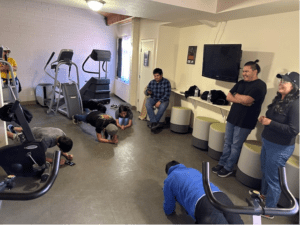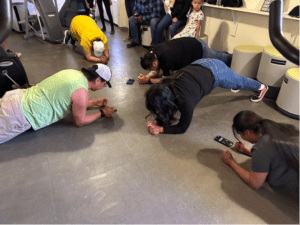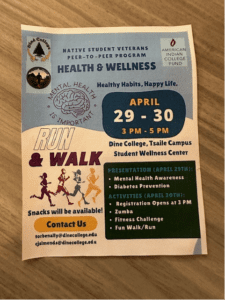Native-Focused Student Services
and Degree Programs
Your future opportunities await.
Search Programs
Learn more about Native-focused programs offered across the country.
Search by area of study, school, state, or keyword.
Looking for Policy and Institute Centers?
Search Here
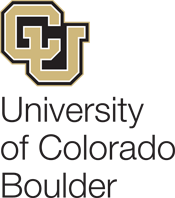
American Indian Law Program
University of Boulder
LegalColorado Law
At Colorado Law, we believe that American Indians deserve the very best lawyers and that we have an obligation to train them. Our American Indian Law Program faculty, including the nation’s top scholars and practitioners in the field, offers a full slate of introductory and advanced classes in the field to prepare students for all aspects of Indian law practice, and we now have dozens of successful alumni practicing Indian law in tribal government, federal agencies, and at law firms.
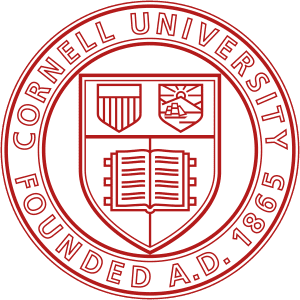
American Indian and Indigenous Studies Program
Cornell University
Native Transfer ProgramCollege of Agriculture and Life Sciences
The American Indian and Indigenous Studies Program (AIISP) can help with your transfer application and can connect you to the transfer coordinators of specific Cornell colleges and schools. To make the transfer process more efficient, Cornell has articulation agreements with a number of colleges and universities.
Contact:
Wayva Waterman Lyons
wl685@cornell.edu
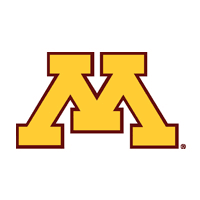
Center for Regional and Tribal Child Welfare Studies
University of Minnesota - Duluth
HumanitiesAmerican Indian Learning Resource Center
Our programs and projects prepare students to become effective child welfare practitioners, particularly in working with American Indian families through offering stipends, coursework and other cultural and experiential learning opportunities. The Center also partners with tribes, county agencies, and non-profits in Minnesota to help improve American Indian child welfare practice and reduce the disparities experienced by families in the child welfare system.
Contact:
Bree Bussey
bussey@d.umn.edu
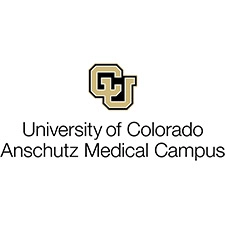
Centers for American Indian and Alaska Native Health (CAIANH)
University of Colorado - CU Anschutz
HealthColorado School of Public Health
The Centers for American Indian and Alaska Native Health (CAIANH) was established in 1986 and is the largest, most comprehensive, and longest standing program of its kind in the country. Our mission is to promote the health and well-being of American Indians and Alaska Natives, of all ages, by pursuing research, training, continuing education, technical assistance, and information dissemination within a biopsychosocial framework that recognizes the unique cultural contexts of this special population.
sarah.mumby@cuanschutz.edu
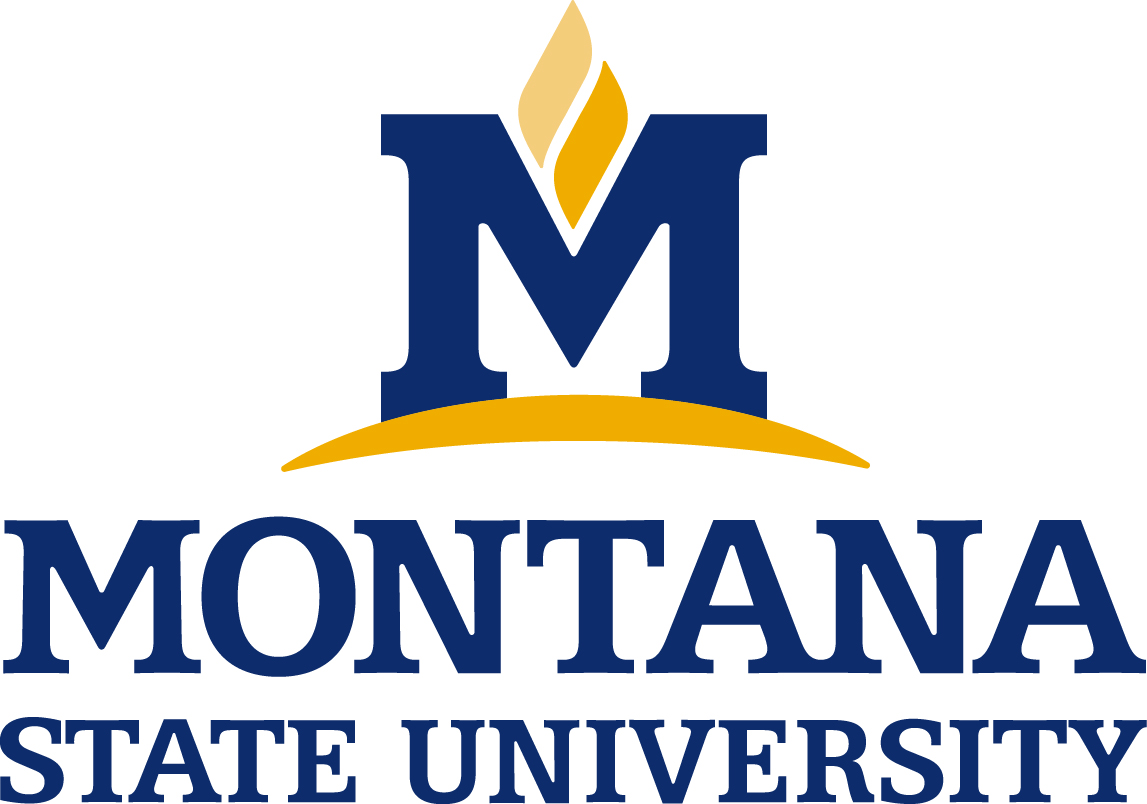
Caring for Our Own Program (CO-OP)
Montana State University
HealthCollege of Nursing
The Caring for Our Own Program (CO-OP) is a supplemental student support program for Native American and Alaska Native students pursuing their nursing degree at Montana State University. CO-OP’s goals are to increase the enrollment of American Indian nursing students in the College of Nursing at Montana State University and build a strong pool of American Indian and Alaska Native nurses who are prepared for practice, management, and leadership to serve Indian Country.
Contact:
coopnursing@montana.edu

College of Education and Human Service Professions
University of Minnesota - Duluth
EducationAmerican Indian Learning Resource Center
The American Indian Learning Resource Center exists to enrich the cultural, academic, supportive, and social environment of the UMD campus. Our mission is to increase the recruitment and retention of American Indian and Alaskan Native students, while promoting a more culturally diverse campus environment. Working in conjunction with UMD staff, the AILRC provides supportive services to empower and aid in the success of our students and to enhance their educational experience.

Daḳota Iapi Uƞspewic̣akiyapi Teaching Certificate
University of Minnesota
LanguageDepartment of American Indian Studies
The Daḳota Iapi Uƞspewic̣akiyapi Teaching Certificate is designed to address the critical point of Dakota language loss in Minnesota by developing a cadre of Dakota language learners, speakers, and teachers. This effort is part of a global indigenous language revitalization movement based on the understanding that language is fundamental to cultural survival and tribal sovereignty.

Indigenous Sun Devil Transfer Program
Arizona State University
Native Transfer ProgramAmerican Indian Student Support Services
The Indigenous Sun Devil Transfer Program helps Indigenous students transition from a community college to ASU. The program provides personalized support whether completing an admissions application or being admitted to ASU. Students are provided with resources and engagement opportunities that support their transition to ASU, connect them with Indigenous peers and staff, and provide personalized guidance to achieve academic and professional goals. The American Indian Student Support staff looks forward to helping you adjust to campus life, build connections and identify mentors.
Contact:
vickie.baldwin@asu.edu
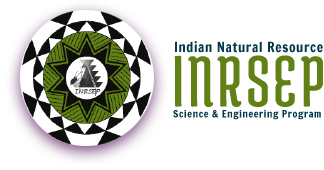
Indian Natural Resources, Science and Engineering Program (INRSEP) + Diversity in STEM
Cal Poly Humboldt
STEMIndian Natural Resources, Science and Engineering Program (INRSEP)
The Master of Tribal Resource and Environmental Stewardship (MTRES) is an applied graduate degree designed in consultation with regional tribes to create future leaders and stewards of tribal natural resources. There is no other graduate-level degree program like this in the country. This degree program takes an integrated approach to protection of natural resources through the lens of Indigenous environmental stewardship.
Contact:
aib3@humboldt.edu
(707) 826-4998
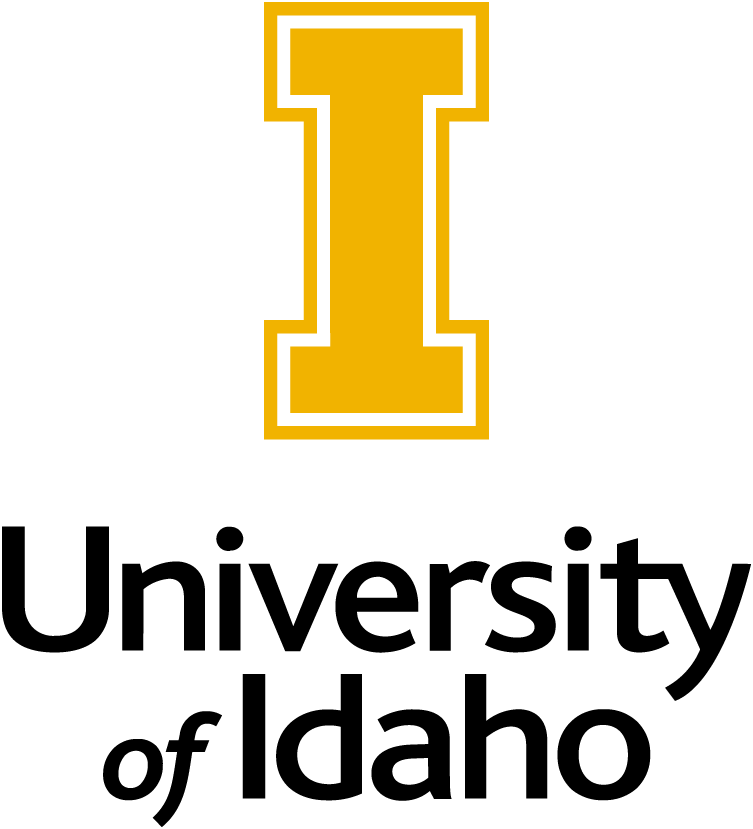
Indigenous STEM Research and Graduate Education (ISTEM)
University of Idaho
STEMAquaculture Research Institute
The University of Idaho (UI) is taking the lead in American Indian graduate-level science, technology, engineering and mathematics (STEM) education by forming the Indigenous STEM Research and Graduate Education program, or ISTEM. The National Science Foundation (NSF) awarded University of Idaho nearly $750,000 to create a national network of institutions collaborating to increase the number of Native students entering and completing masters and doctoral programs in STEM fields. ISTEM is a pilot program with the Experimental Program to Stimulate Competitive Research (EPSCoR) program at NSF.
Contact:
aqua@uidaho.edu

Indian Legal Program
Arizona State University
LegalSandra Day O'Conner College of Law
Established more than 30 years ago, the Indian Legal Program (ILP) at the Sandra Day O’Connor College of Law at Arizona State University has grown to become one of the most respected Indian law programs in the nation. Situated in the heart of the Southwest, with connections to Arizona’s 22 tribes and tribes nationally, the ILP is in the perfect location for students looking to study the developing field of Indian law. Our nationally recognized faculty members are leading scholars in their fields, producing research and publications, as well as providing outreach and public service.
Contact:
Patty Ferguson-Bohnee
pattyfergusonbohnee@asu.edu
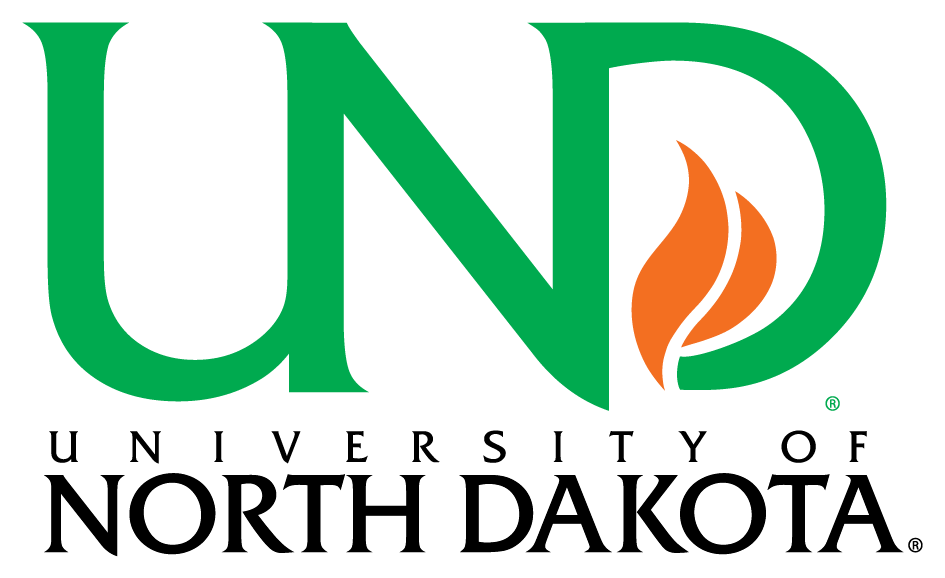
Indians Into Medicine (INMED)
University of North Dakota
Health School of Medicine & Health Sciences
INMED provides academic, personal, social, and cultural support for students in grades 7 through graduate studies. Each year, INMED enrolls an average of 100 health, pre-health, and allied health students in various academic programs.
Contact:

Indians Into Psychology (InPsych)
University of Montana
HealthDepartment of Psychology
The InPsych program is designed to recruit American Indian/Alaska Native undergraduate students into psychology and recruit, fund and train American Indian graduate students into Clinical Psychology. The ultimate goal is to send licensed American Indian/Alaska Native Clinical Psychologists back to reservation communities and urban Indian health programs to fill the needs for culturally competent care and address health disparities.
Contact:
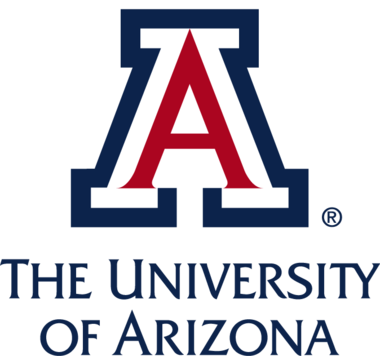
INMED
University of Arizona
HealthHealth Sciences
The goal of the AZ INMED is to develop collaborative partnerships with tribal nations, K-12 school districts, community-tribal colleges, universities and health professional schools to recruit, support and encourage Native American students to enter and succeed in the health professions at the Arizona Health Sciences Centers located in both Tucson and Phoenix, Arizona (Colleges of Medicine, Pharmacy and Public Health).
Contact:
coopnursing@montana.edu

Indigenous Teacher Education Program
University of Arizona
EducationCollege of Education
The Indigenous Teacher Education Program (ITEP) is an in-person Bachelor's Degree granting program that was founded in 2016, through a grant from the US Department of Education. Our mission is to increase the number of Indigenous teachers serving Indigenous students, schools, and communities. Our students graduate with a Bachelor's Degree in Early Childhood or Elementary Education and a teaching certification.

Indigenous Peoples Law & Policy Program
University of Arizona
LegalJames E. Rogers College of Law
What makes the Indigenous Peoples Law and Policy (IPLP) Program at the University of Arizona Law unique is our approach to legal education in the fields of federal Indian law, tribal law and policy, and Indigenous peoples human rights. Students are trained in the classroom and in real-world settings by faculty who are leaders both in their academic fields and as practitioners in tribal, national, and international forums.
Contact:
Justin Boro
justinboro1986@email.arizona.edu
(520) 626-9224
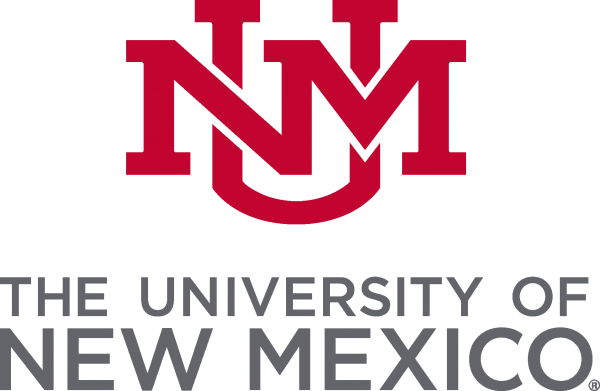
Law & Indigenous Peoples Program
University of New Mexico
LegalLaw & Indigenous Peoples Program
The UNM School of Law has a strong and longstanding tradition of dedication and commitment to the development of the field of Indian law education and assisting in the legal protection and representation of Native American nations and communities.
Contact:
John P. LaVelle
lavelle@law.unm.edu
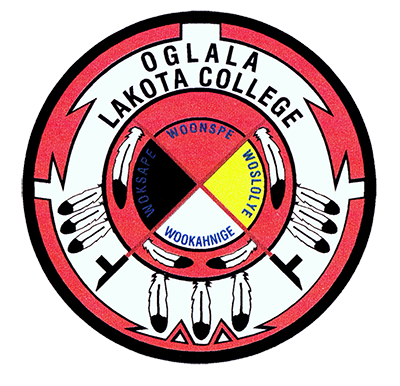
Lakota Studies
Oglala Lakota College
LanguageLinguistics
The Lakota Studies department offers four different degrees as well as a Lakota Language Certificate. By training to develop skills in research, evaluation, communication, analysis, and graphic design, you'll experience a customized education befitting of the ever-changing demand of modern society. The department also provides the focus for the entire college in maintaining a Lakota perspective.

Master of Tribal Resource and Environmental Stewardship
University of Minnesota Duluth
STEMAmerican Indian Studies
The Master of Tribal Resource and Environmental Stewardship (MTRES) is an applied graduate degree designed in consultation with regional tribes to create future leaders and stewards of tribal natural resources. There is no other graduate-level degree program like this in the country. This degree program takes an integrated approach to protection of natural resources through the lens of Indigenous environmental stewardship.

Master of Professional Studies (MPS) Indigenous Governance
University of Arizona
LegalJames E. Rogers College of Law
The Indigenous Governance Program (IGP), a partnership between University of Arizona Law’s Indigenous Peoples Law and Policy (IPLP) Program and the University of Arizona Native Nations Institute (NNI), provides professional development, leadership training, and graduate education for individuals interested in a deep, practical understanding of Indigenous governance and rights. IGP’s nation building and Indigenous governance curriculum combines the expertise of world-renowned faculty with data-informed research on what works for Native Nation (re)building efforts. IGP offers both in-person and online courses for tribal leaders and other professionals to collaborate on how to strengthen Indigenous governance.
Contact:
Dr. Tory Fodder
taf05@email.arizona.edu
(520) 621-3093
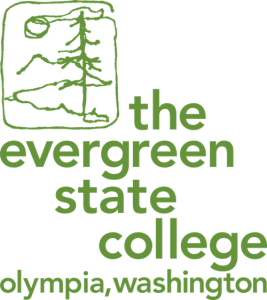
MPA Tribal Governance
Evergreen State College
GovernanceMaster of Public Administration
Currently, there is no other Master of Public Administration program in the U.S. with an emphasis on Tribal Governance. With that in mind, the Tribal Governance Cohort focuses on structures, processes and issues specific to Tribal Governments providing the knowledge and skills needed to work successfully within public administration. The Cohort is also appropriate for those working with governmental or other organizations in a liaison role with Tribal Governments.
Contact:
Puanani Nihoa, MPA
nihoap@evergreen.edu
(360) 688-4780 (cell)

Master of Tribal Resource and Environmental Stewardship (MTRES)
University of Minnesota Duluth
LegalAmerican Indian Studies
The Master of Tribal Resource and Environmental Stewardship (MTRES) is an applied graduate degree designed in consultation with regional tribes to create future leaders and stewards of tribal natural resources. There is no other graduate-level degree program like this in the country. This degree program takes an integrated approach to protection of natural resources through the lens of Indigenous environmental stewardship.

Master of Tribal Administration and Governance
University of Minnesota Duluth
GovernanceAmerican Indian Studies
The Master of Tribal Administration and Governance (MTAG) is an applied professional development degree designed to develop the knowledge and skills needed to work as an administrator in a tribal government. Students in the program may already serve as tribal administrators, council members or tribal leaders. Students who currently work or aspire to work professionally in tribal governments or management positions will benefit from this program, which emphasizes both the acquisition of academic knowledge and the application of practical skills.
Contact:
umdmtag@d.umn.edu
218-726-7332
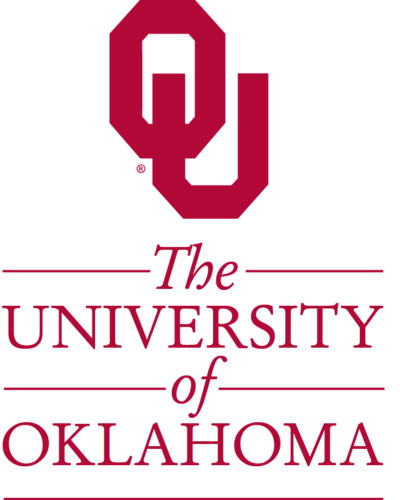
MLS in Indigenous Peoples Law
University of Oklahoma
LegalTBD
The M.L.S. in Indigenous Peoples Law is an online, 33-credit hour graduate degree that can be completed in 15 months. This program offers a strong foundation in Native American Law for non-lawyers who deal with contracts, negotiations or any other issues that demand knowledge of Native American policy, regulation or business practice.

Master of Arts in Native American Languages and Linguistics
University of Arizona
LanguageLinguistics
The NAMA degree program is oriented towards community language activists who wish to train in the kinds of skills and experience needed to work on maintaining, revitalizing, and documenting their native languages. Students interested in NAMA can either be speakers or second language learners of their language, or ones who have studied a particular Native American language and have close contact with that language community.
MBA in American Indian Entrepreneurship
Gonzaga University
BusinessSchool of Business Administration
Gonzaga's MBA in American Indian Entrepreneurship (MBA-AIE) program was established in 2001 with the generous help of the Johnson Scholarship Foundation. Gonzaga University was chosen to develop the program because of its national recognition, accreditation, strong mission, and commitment to social justice. The program strives to prepare leaders to effectively manage and support sustainable business on American Indian reservations.
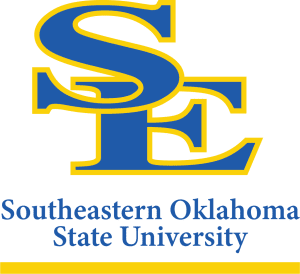
MBA in Native American Leadership
Southeastern Oklahoma State University
BusinessJohn Massey School of Business - Online MBA Programs
Culture can be your key to success with our 100 percent online MBA in Native American Leadership degree program. Learn how to manage diversity in a changing world as you explore personal and organizational leadership, tribal sovereignty and contemporary issues facing the Indian Country.

Navajo Law Fellowship Program
University of Arizona
LegalJames E. Rogers College of Law
The Navajo Law Fellowship Program provides financial support, mentorship, a Navajo law curriculum, externship opportunities on the Navajo Nation, and bar preparation assistance to Navajo Juris Doctor (JD) students attending University of Arizona Law.
Contact:
Faith Liston
afs1@email.arizona.edu
(520) 621-1166

Native Americans Into Medicine (NAM)
University of Minnesota - Duluth
HealthCenter of American Indian and Minority Health
NAM is a seven-week summer enrichment program for college sophomores, juniors and seniors interested in pursuing health careers. The 2023 NAM Summer program will provide students with both qualitiative and quanitative research experience, using data from the Minnesota Youth Survey. The dates of the program are June 20th-Aug 4th. The 2023 NAM program is a two-summer cohort.
Contact:

Native American Science and Engineering Program
University of Arizona
STEMEarly Academic Outreach
An initiative of the Office of Early Academic Outreach at The University of Arizona, the Native American Science & Engineering Program is a FREE year-long program designed to provide Native American high school students with the necessary resources to enroll in college and pursue a career in a Science Technology Engineering & Mathematics (STEM) field. NASEP participants will gain a wide exposure to these fields through interactions with university experts on many subjects including environmental sustainability. The intention of this program is to expose students to a wide variety of STEM pathways so as to better inform their college pathways in the context of the Native American experience.

Native Children's Research Exchange Scholars Program
University of Colorado - CU Anschutz
HealthColorado School of Public Health
The NCRE Scholars Program provides career development support to early career investigators and late-stage graduate students interested in pursuing research on substance use and disorder and Native child and adolescent development.
Contact:
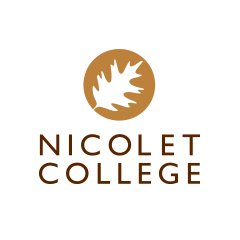
Native American Tribal Management
Nicolet College
BusinessBusiness Management Programs
Develops the skills of people who work or plan to work in a First Nation environment including fundamental management skills, and how a Native nation’s legal, political and cultural context impact an organization’s work.
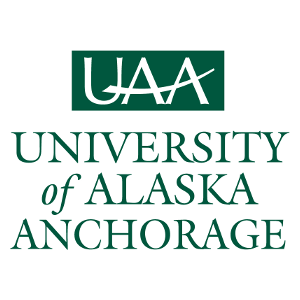
Native Early Transition Program (NET)
University of Alaska - Anchorage
College BridgeNative Student Services
Native Student Services (NSS) provides a safe, affirming space on campus for Alaska Native, Native American, and Indigenous students. It is a gathering place where incoming and current students can find academic, advising, and cultural support; access resources; study with classmates; attend culturally empowering events, connect with community representatives; and interact with people who share similar experiences as Indigenous peoples.

New Freshman Summer Bridge (NFSB)
Institute of American Indian Arts (IAIA)
College Bridge
The Institute of American Indian Arts (IAIA) New Freshman Summer Bridge (NFSB) is a free, three-week, on-campus program available to incoming IAIA Freshmen with no college experience who have been accepted to IAIA for Fall 2022. Students establish skills for college readiness, leadership, and creativity with dedicated instructors and staff. Students will also earn three credits through educational workshops and classes while attending the program.
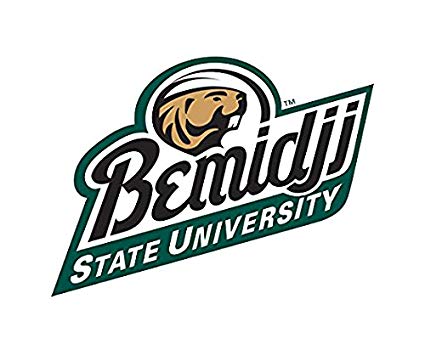
Ojibwe Language Program
Bemidji State University
LanguageLanguages & Indigenous Studies
Bemidji State University is home to the first collegiate Ojibwe language program in the United States, starting with adjunct classes in 1969 and a full three-year sequence of language courses starting in 1971. Additional current course offerings include Ojibwe Culture, Ojibwe Oral Literature, and Instruction of Ojibwe.
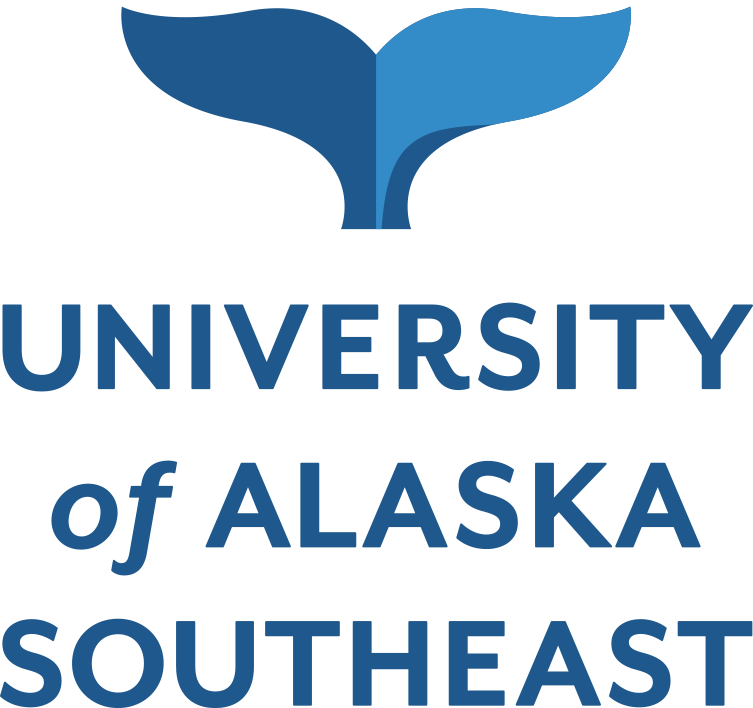
Preparing Indigenous Teachers & Administrators for Alaska Schools (PITAAS)
University of Alaska Southeast
EducationSchool of Education
Alaska is diverse and so are our educators. The PITAAS program is a scholarship that supports Alaska Native students who want to become teachers and administrators in Alaska’s schools. A total of 228 degrees and certificates were awarded to 152 Alaska Native students with PITAAS scholarship support. PITAAS graduates are employed by 28 of 54 school districts across our vast state. Application for Spring 2023-Summer 2023 will be posted mid-November.

Pre-Law Summer Institute (PLSI) for American Indians and Alaska Natives
University of New Mexico School of Law
LegalAmerican Indian Law Center, Inc.
PLSI is an intensive two-month program that prepares American Indian and Alaska Native individuals for the rigors of law school by essentially replicating the first semester of law school. The PLSI concentrates its content into eight weeks of instruction, research and study, teaching students the unique methods of law school research, analysis, and writing. The success of the PLSI in providing a nationally respected pre-law orientation can be traced to its original and continuing intent — that it be based on sound legal education principles, and not function as a philosophical, political, or cultural training ground. For more than five decades, the Law Center has remained dedicated to providing valid training in the skills required for the study of law.

Sloan Scholars Program; Sloan Indigenous Graduate Partnership
University of Montana
STEMIndigenous Research and STEM Education
The UM Sloan Indigenous Graduate Partnership (UM SIGP) was established in the fall of 2005. Indigenous (Native American, Alaskan Native, Native Hawaiian) graduate students pursuing degrees in STEM at The University of Montana are eligible to apply for the scholarship program established by the A.P. Sloan Foundation. The UM SIGP Program is intended to increase the number of Indigenous Americans earning master’s and doctoral degrees in STEM disciplines.
Contact:
Dr. Thomas
406-243-2052
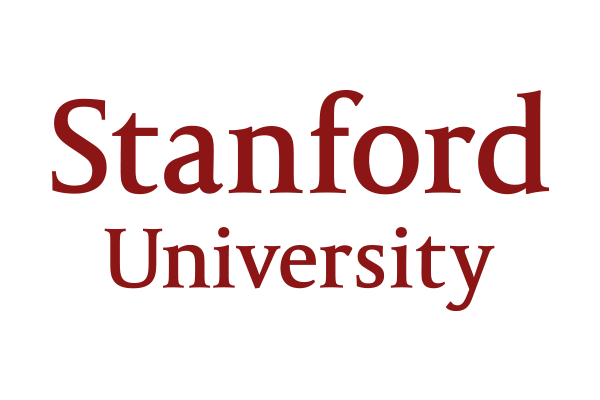
Stanford Native Immersion Program
Stanford University
College BridgeNative American Cultural Center
The Stanford Native Immersion Program (SNIP) is a six-day, fun and information-filled virtual experience designed to welcome incoming frosh to the Farm.
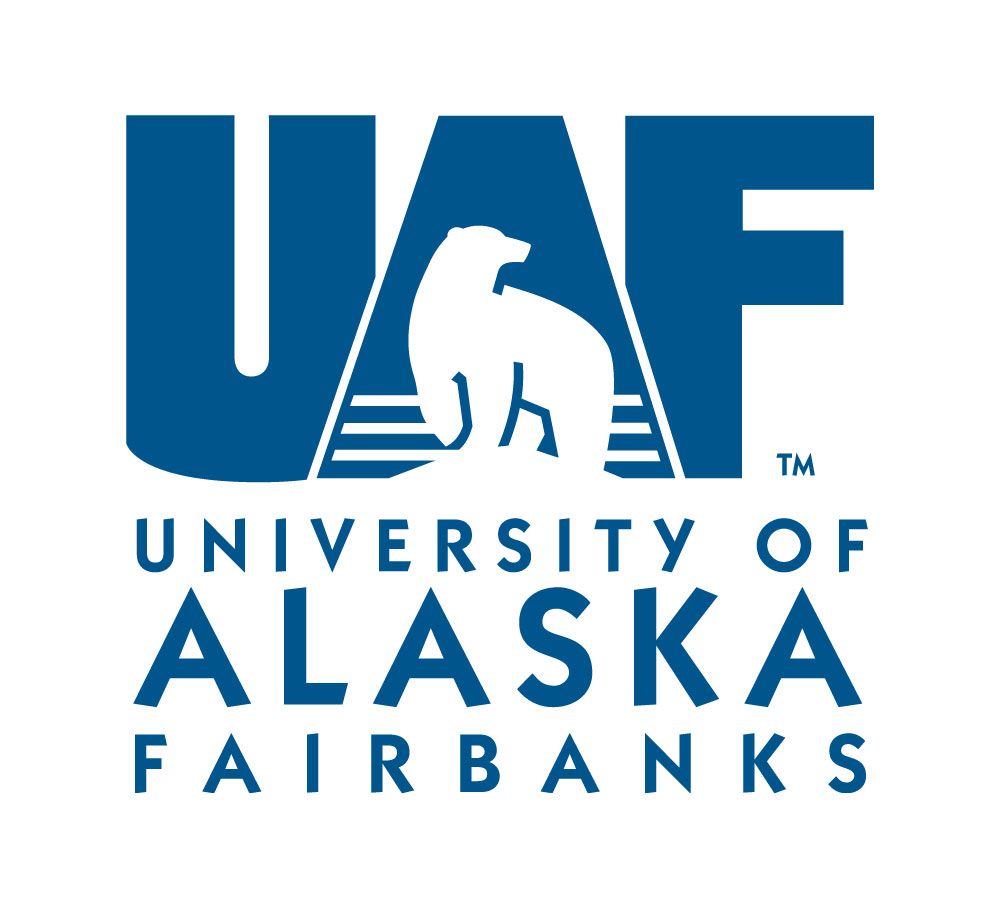
Yup'ik; Yup’ik Language and Culture; and Iñupiaq Bachelor of Arts degrees; minor degrees in Alaska Native Languages; Yup'ik, and Iñupiaq; Associate's degrees in Native Language Education and Yup'ik Language Proficiency; and certificates in Native Language Education and Yup'ik Language Proficiency
University of Alaska - Fairbanks (Kuskokwim campus in Bethel, AK)
LanguageAlaska Native Lanaguage Center
The Alaska Native Language Center offers academic programs ranging from certificates to bachelors degrees. Our programs promote language revitalization, community connections, and intergenerational learning.
Tribal Colleges and Universities
Tribal colleges and universities provide dynamic higher education opportunities, most on or near reservation lands. Known for their remarkable programs, culturally-relevant curricula, and familial student care – tribal colleges allow students to further their careers, attain an advanced degree, or better support their communities.
Related Pages
Students Social Media
News & Events
American Indian College Fund Publishes Tribal College and University Research Journal Volume 7
American Indian College Fund Publishes Tribal College and University Research Journal Volume 7
Focus is Student Support, Academic Outcomes and Diné Educational Philosophy
Denver, Colo., July 16, 2024 —The American Indian College Fund has published Volume 7 of the Tribal College and University Research Journal (TCURJ) featuring articles on a culturally responsive student support model, teachers’ awareness of systemic factors impeding student academic outcomes, and the Diné educational philosophy. The journal is a peer-reviewed, multidisciplinary academic publication featuring the research and best practices of tribal college and university faculty and their collaborators.
The College Fund launched the TCURJ in 2016 to support tribal college and university (TCU) faculty in disseminating their research to Indigenous communities and the wider research community. The journal publishes articles from a variety of fields such as environmental science, Indigenous health and wellness, student success, and TCU program development. The Henry Luce Foundation has generously supported publication of the journal since 2018.
All volumes of the TCURJ can be found at https://collegefund.org/research/tcurj/.
About the American Indian College Fund — The American Indian College Fund has been the nation’s largest charity supporting Native higher education for 34 years. The College Fund believes “Education is the answer” and provided $17.4 million in scholarships and other direct student support to American Indian students in 2022-23. Since its founding in 1989 the College Fund has provided more than $319 million in scholarships, programs, community, and tribal college support. The College Fund also supports a variety of academic and support programs at the nation’s 34 accredited tribal colleges and universities, which are located on or near Indian reservations, ensuring students have the tools to graduate and succeed in their careers. The College Fund consistently receives top ratings from independent charity evaluators and is one of the nation’s top 100 charities named to the Better Business Bureau’s Wise Giving Alliance. For more information about the American Indian College Fund, please visit www.collegefund.org.
Journalists — The American Indian College Fund does not use the acronym AICF. On second reference, please use the College Fund
Still Time to Apply for Federal Financial Aid!
There is still time this summer to submit your application for federal financial aid. Students can receive up to $7,395 for their education per year through the Pell Grant program! Combining scholarships and federal financial aid makes good economic sense. Don’t leave money on the table. For more information and to apply, visit studentaid.gov.
Veteran Student Uses Fellowship to Lead Mental Health Awareness Efforts
“Leadership is the capacity to translate a vision into reality — Warren Bennis
By Tori Primeaux
On October 30, 2023, I heard about an opportunity through the American Indian College Fund for a fellowship for Native students who are veterans to grow as leaders as they adapt to higher education after military life. The fellowship offered mentorship and training opportunities, as well as resources and tools to strengthen their visions. I was selected with fellow veteran Cynthia Jones to participate, and in November of 2023 began to plan how I would implement my vision of becoming a mental health leader in my community.
Cynthia and I, along with our peer mentor, Kameia, were invited to attend a Women’s Leadership Program and Native Veterans Student Convening in February 2024.There we received information to help me gain a better understanding of how to step into my leadership role. It was astonishing to meet other women who held higher positions in their careers making executive decisions. Those interactions helped to boost my confidence and to allow me to be decisive as I accepted my leadership role. I also realized that Indigenous individuals can fill higher positions The stories other women at the conference shared of building their careers from the ground up influenced me as well. All of these things opened my mind to how I wanted to begin my own leadership journey and incorporate all that I had learned from this experience.
Back home, we met every week from March 15 until April 15 to discuss our plans and how to implement them. I wanted to prioritize mental health and raise awareness of the importance of seeking help, stress management, meditation, and prayer. As a college student who lives on a reservation, I know how mental health is overlooked 80% of the time. Stress is the number one factor that contributes to poor mental health in students with tests, exams, due dates, and other projects alongside maintaining physical health. The reservation is isolated and there are not enough resources there to help Native Americans. It is not easy to attend a gym like one would in a city. There are limited resources, and this is often when drugs are abused to fulfill the urge to be engaged in an activity.
As we continued to plan our event, we gathered information about how to engage with students on campus who deal with this issue. I wanted students to be engaged and want to be involved in gaining a better understanding of how to self-regulate and exercise for their well-being. On April 29, I created a presentation on mental health, sharing facts, such as how to receive help, along with how to spot friends and family who need help but may not know how to ask for it. I asked questions, involved the students, and explained my personal experience to gain trust. I explained how to get help in our community and on campus. I also led a group exercise, and those who participated received gifts and prizes. It was a day that allowed students to be involved and gain recognition for competing in an activity they can continue to use that is not expensive, doesn’t require a car, and costs nothing and can help release negative thoughts. It was a fun day for them to be exposed to tools and valuable information about mental health and to help them understand that mental health is just as important as any other health concern.
Through this opportunity I gained a better understanding of how I will use my degree to help my community and be a voice for those who need help. I learned that to understand a situation you must first put yourself in the position to know what needs to be done. I want to make more resources available and be involved.
As a veteran, I have served my country, and now, I see it as only fair that I serve my community on the reservation. I have gained a lot of knowledge and understanding to take on this role that I now know I can fulfill. The conference sparked a fire in me that I know will soon become a flame that will create a bigger fire within everyone I help. This has been an amazing experience, and I cannot wait to set forth with my commitment.


